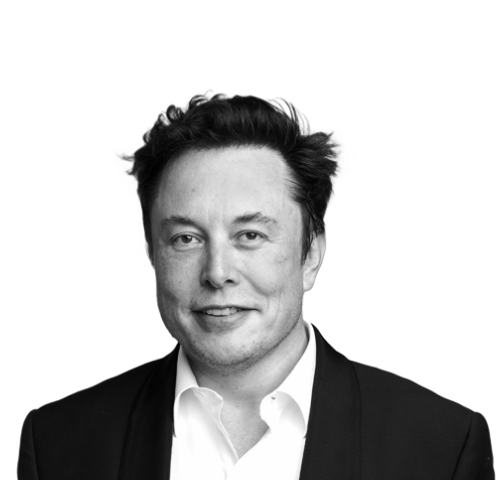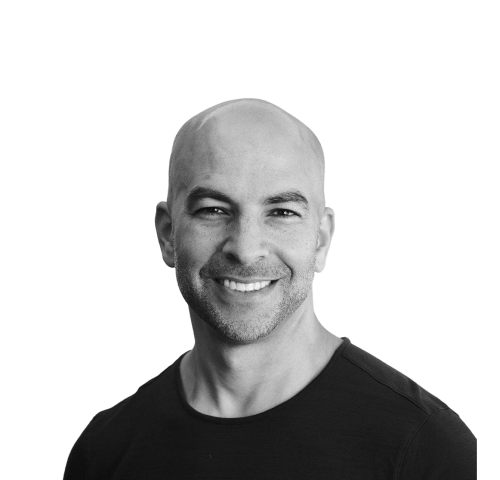Elon Musk’s Supplement List in 2026

The Daily Stack That Supports His Busy Schedule
Elon Musk is known for his intense work schedule, long hours, and constant push for innovation. To help manage energy, focus, and overall health, he’s believed to use a small range of supplements. While he hasn’t confirmed every detail, there’s growing interest in what he might be taking to stay sharp and productive. This article gives a simple look at the Elon Musk supplements list based on what’s been publicly shared or widely discussed.
- Last Updated: December 30, 2025
-
-
Creatine
Even though Elon Musk has a demanding daily routine, he still pays close attention to how small habits impact his performance. One of the topics he’s discussed publicly is creatine, a well-known supplement that supports both mental and physical function. His thoughts on it reveal how he approaches productivity and energy in a practical, science-backed way.
- Mental performance support: In a 2023 conversation with Joe Rogan, Musk agreed that creatine improves cognitive performance, especially during sleep deprivation. He even referred to it as “actually a nootropic,” highlighting its brain-boosting potential.
- Natural dietary source: He noted that creatine occurs naturally in meat and mentioned switching his breakfast to steak and eggs as a “power-up,” a change that may help maintain focus and energy in the mornings.
- Energy buffering and recovery: Creatine increases phosphocreatine stores in the body, which help buffer cellular energy demand. This can improve working memory and executive function, particularly under stress or lack of sleep.
- Performance-enhancing dosage: Athletes typically take about 3–5 g of creatine monohydrate daily to support strength gains, and researchers studying cognitive effects use similar amounts.
Although Musk hasn’t stated directly that he takes a creatine supplement, his praise for its cognitive benefits and emphasis on meat-heavy breakfasts suggest he values its role in staying sharp and performing at a high level.
Creatine Options That Support Sharper Thinking and Steady Energy
- Wellah Creatine Monohydrate Capsules: Each serving gives you 3000 mg of creatine in a capsule format designed for people who want zero prep and fast consistency. It is useful if you prefer a routine where you can take your creatine with your morning vitamins and move on with your day without mixing anything.
- Lunakai Creatine Monohydrate Gummies: These gummies provide 4500 mg of creatine per serving and come in a watermelon flavor that makes supplementation feel more enjoyable than clinical. They suit anyone who wants a creatine source that feels effortless to take, especially during hectic workweeks or while commuting.
- Nutricost Creapure Creatine Monohydrate Powder: With 1000 grams of powder and 200 total servings, each scoop at 5 grams, this option gives you a long supply of a highly tested creatine form. It works well for people who like adding creatine into shakes or morning drinks and want a smooth dissolving powder that supports daily cognitive and physical output.
-
Vitamin B12
Musk often stresses the importance of knowing what your body actually needs before turning to supplements. His views on vitamin B12 reflect a preference for science-backed decisions over marketing claims or unnecessary products.
- Skepticism toward aggressive marketing: During a conversation on Joe Rogan’s podcast, Musk shared how a doctor told him he was deficient in vitamin B12 and offered a pricey “starter pack” of pills with 20,000% of the daily value for $1,000 a month.
- Verification through testing: Rather than accepting the recommendation, he got his blood work done and discovered that his B12 levels were already high, proving the supplement was unnecessary.
- Questioning exaggerated claims: Musk criticized the doctor’s statement that “you can never have too much B12,” highlighting how such claims can be misleading without proper evidence.
- Role in neurological health: Vitamin B12 is essential for healthy nerve function and the production of red blood cells, and deficiencies can lead to megaloblastic anemia and neurological problems like neuropathy.
- Caution with personalized plans: Musk’s story shows that not every individualized supplement plan is necessary and underscores the importance of confirming deficiencies before starting supplementation.
This approach reflects his belief that supplement decisions should be guided by medical testing and real need, not marketing tactics or exaggerated promises.
B12 Choices Designed for Better Focus and Everyday Drive
- aSquared Nutrition Vitamin B12: This bottle provides 120 tablets of high strength methylcobalamin, offering a long lasting supply for people who want consistent support for energy and mental clarity. It works well if you prefer a simple once a day tablet that fits smoothly into a busy routine.
- Nutricost Vitamin B12: With 240 capsules per bottle, this option delivers a clean, vegetarian friendly B12 source designed for steady daily use. It suits anyone who wants a straightforward supplement that supports focus and healthy nerve function without extra additives.
- VITBOOST B12 Complex: This formula combines a concentrated dose of B12 with collagen, hyaluronic acid, and folate into 60 capsules for a more well rounded approach to energy and overall wellness. It is a good match for people looking for a daily supplement that supports mood, metabolism, and cognitive performance together.
-
Ketamine
Musk has spoken openly about mental health and how he manages it while maintaining his demanding schedule. One of the more unexpected elements of his regimen is ketamine, which he uses under medical supervision to support mood and productivity.
- Prescription use for depression: In a 2026 interview with CNN’s Don Lemon, Musk shared that he has a prescription for ketamine, which he takes about every other week to manage symptoms of depression.
- Warning against overuse: He emphasized the importance of moderation, stating, “If you use too much ketamine you can’t really get work done,” highlighting how responsible use is key to maintaining productivity.
- Perceived performance benefits: Musk suggested that moderate use helps him stay focused and productive, even adding that investors should want him to continue this approach because of its positive impact on his work.
- Clinical background and dosing: Ketamine is an N-methyl-D-aspartate (NMDA) receptor antagonist known for its rapid antidepressant effects at low, sub-anesthetic doses. Controlled infusions (0.5 mg/kg over 40 minutes) are commonly used in medical settings.
- Potential side effects and risks: Recreational misuse can lead to dissociative side effects, bladder damage, and cognitive decline, which is why medical supervision is essential for safe use.
- Broader use among professionals: Musk’s experience reflects a growing interest among executives in psychedelic-adjacent therapies to support mood stability and mental performance.
His openness about ketamine highlights a careful, medically guided approach to mental health support, showing that even unconventional treatments can have a place when used responsibly.
Disclaimer: Ketamine is a prescription medication that should only be used under the supervision of a qualified healthcare professional. This content is for informational purposes only and is not medical advice.
-
Ambien
With his demanding workload and intense schedule, Musk has often spoken about how difficult it can be to get enough rest. To manage his sleep, he has turned to prescription options in the past, highlighting how even high performers struggle with balancing productivity and recovery.
- Managing sleep deprivation: Musk has described how his long work hours often left him with little time for rest. He admitted that without some form of assistance, he might not sleep at all, explaining that it was often “a choice of no sleep or Ambien.” This reflects the severe sleep disruption caused by his intense work commitments.
- Use of prescription medication: To counteract these challenges, he sometimes relied on Ambien (zolpidem), a prescription hypnotic commonly used to treat insomnia. It helped him fall asleep despite irregular hours and a packed schedule, allowing him to recover enough to continue functioning at a high level.
- Concerns from colleagues: Reports noted that Tesla board members expressed concern about his reliance on Ambien. Their worries highlighted how frequent use of sleep medications can become an ongoing issue, especially for someone in a high-pressure leadership role.
- How Ambien works: Ambien is a non-benzodiazepine drug that enhances GABAergic signaling in the brain, a process that slows down neural activity and promotes sleep. It’s designed for short-term use and is often prescribed when sleep problems become severe or persistent.
- Potential risks of use: While effective, Ambien can lead to tolerance, dependence, memory lapses, and reduced alertness if used chronically or in high doses. These risks underline why medical supervision and limited duration are essential when using prescription sleep aids.
Musk’s experience with Ambien highlights the ongoing challenge of maintaining healthy sleep patterns while managing an intense work schedule.
Disclaimer: Ambien should only be taken under the guidance of a licensed healthcare professional. The details shared here are for informational purposes only and should not be considered medical advice.
-
Mounjaro
Musk has spoken openly about the methods behind his weight loss, crediting a mix of disciplined habits and modern medical treatments. Alongside dietary changes like fasting and avoiding highly palatable foods, he has acknowledged using prescription medications designed to regulate appetite and improve metabolic health.
- Public discussion of his approach: Musk has shared that his weight loss was not just the result of lifestyle changes but also included the use of GLP-1 medications, which are commonly prescribed for managing weight and blood sugar levels.
- Clarifying the medication: Although he initially mentioned Ozempic and Wegovy, he later explained that the treatment he actually uses is Mounjaro (tirzepatide), another medication in the same class that is effective for weight control.
- How it works in the body: Mounjaro belongs to a group of injectable GLP-1 receptor agonists, originally developed for type 2 diabetes but now widely used for obesity. These medications mimic the GLP-1 hormone, slow down digestion, and reduce appetite, helping users consume fewer calories over time.
- Dosage and outcomes: The medication is typically administered once a week in doses ranging from 2.5 mg to 15 mg, depending on the formulation. It is known to promote steady and significant weight loss when combined with a healthy lifestyle.
- Part of a growing health trend: Musk’s use of Mounjaro reflects a larger movement toward GLP-1 therapies for supporting long-term weight management, metabolic balance, and longevity.
His experience highlights how combining effective medical treatments like Mounjaro with consistent lifestyle habits can lead to lasting improvements in weight control and overall health.
Disclaimer: Mounjaro and other GLP-1 medications should only be used under the guidance of a qualified healthcare professional. This information is for educational purposes only and is not a substitute for medical advice.
-
Disclaimer: The supplements mentioned in this article are based on items Elon Musk has talked about publicly or on options that align with those references. The products linked here may differ from the exact brands he chooses personally. Some of the links included are affiliate links, which means we may earn a small commission if you decide to make a purchase. This material is meant for informational use only and should not be treated as medical advice.
-



